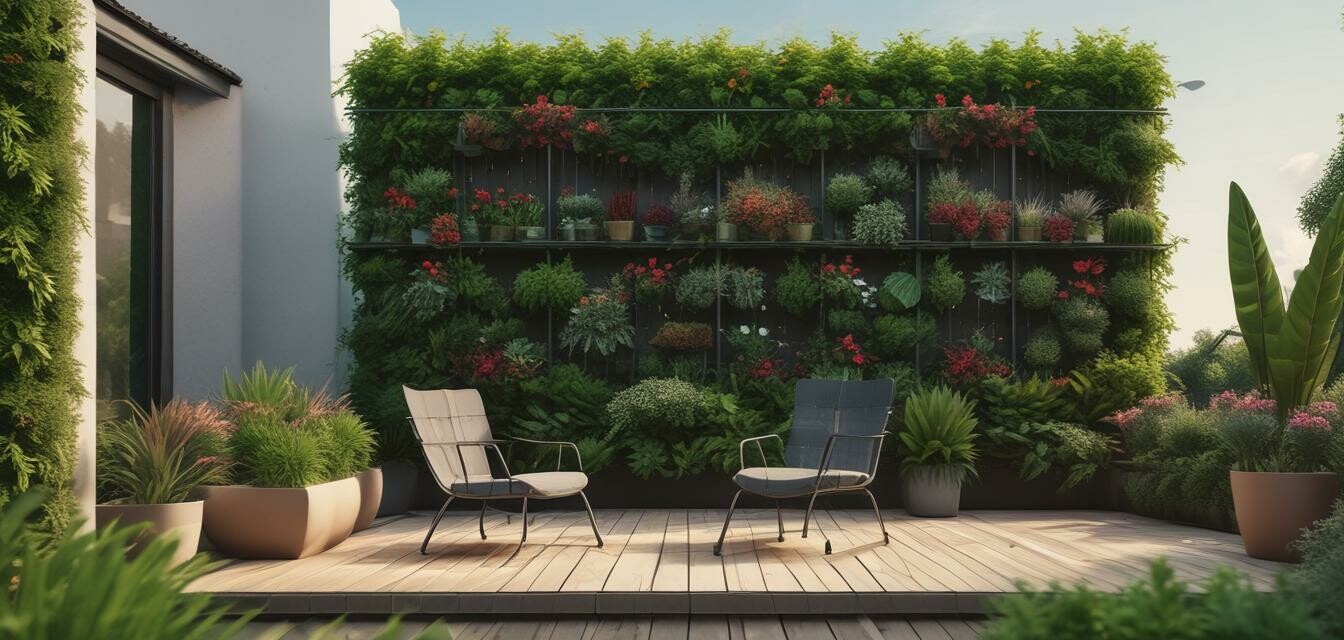
The Future of Sustainable Gardening: Trends in 2025
Key Takeaways
- Sustainable gardening is rapidly evolving with innovative practices that enhance both aesthetics and environmental impact.
- Vertical gardens and green roofs are becoming popular for urban spaces.
- Smart gardening technology will be crucial for efficient plant care and resource management.
- Composting and waste management are integral to sustainable gardening.
- Choosing the right eco-friendly materials can make a significant difference in gardening outcomes.
As we look ahead to 2025, the world of sustainable gardening is set to witness transformative trends that not only enhance the beauty of our landscapes but also promote environmental stewardship. These trends are essential for any gardener looking to stay ahead of the curve while contributing positively to our planet. In this article, we'll explore the future of sustainable gardening, highlighting upcoming trends that promise to reshape our outdoor experiences.
1. Embracing Vertical Gardens and Green Roofs
In a rapidly urbanizing world, space is at a premium. Vertical gardens and green roofs have emerged as exciting solutions to maximize limited space while bringing nature closer to urban dwellers. These gardening techniques not only beautify buildings but also provide insulation, reduce energy costs, and improve air quality.
Benefits of Vertical Gardens
- Utilizes small spaces efficiently.
- Brings greenery to urban environments.
- Improves property value and aesthetics.
2. The Rise of Smart Gardening Technology
As technology advances, so does its application in gardening. Smart gardening tools, including automated irrigation systems and plant health monitors, are expected to become standard. These advancements not only save time but also ensure optimal growth conditions for plants.
Key Smart Gardening Technologies
| Technology | Function | Benefits |
|---|---|---|
| Automated irrigation systems | Water plants efficiently | Conserves water and reduces effort |
| Soil sensors | Monitor moisture and nutrients | Ensures optimal plant health |
| Garden app integrations | Track plant growth and health | Provides insights and tips for care |
3. Eco-Friendly Fertilizers and Soil Amendments
As awareness of the environmental impacts of traditional fertilizers grows, more gardeners are turning to eco-friendly alternatives. These fertilizers are better for the soil and promote healthy plant growth without harming beneficial microorganisms.
For more information on eco-friendly options, check out our Eco-Friendly Fertilizers category.
4. Sustainable Waste Management in Gardens
Composting is one of the easiest and most effective ways to manage garden waste sustainably. As more gardeners adopt composting practices, the trend continues to grow, allowing for rich, organic material to be returned to the soil.
Composting Benefits
- Reduces waste sent to landfills.
- Improves soil health and structure.
- Supports a closed-loop ecosystem in gardening.
Learn more about composting by visiting our Composting & Waste Management section.
5. Innovative Planting Techniques
Aesthetic gardening is set to advance with innovative planting techniques that focus on biodiversity and native plant use. Techniques such as permaculture and companion planting will not only beautify spaces but also foster resilience in our gardens.
Examples of Innovative Planting Techniques
| Technique | Description | Benefits |
|---|---|---|
| Permaculture | Designing agricultural ecosystems | Enhances biodiversity and sustainability |
| Companion planting | Planting different species together | Natural pest control and better yields |
| Native planting | Using plants native to the region | Supports local ecology and resilience |
6. Outdoor Lighting Solutions for Aesthetics and Safety
Creative outdoor lighting can enhance the beauty of garden spaces while providing safety and security. As sustainable and energy-efficient lighting options become more available, homeowners are expected to invest in innovative lighting solutions that complement their gardens.
Explore our selection of Outdoor Lighting Solutions to enhance your garden's aesthetic appeal.
Conclusion
The gardening landscape in 2025 promises to be a blend of innovation, sustainability, and beauty. By embracing trends like vertical gardens, smart technology, and eco-friendly practices, gardeners can cultivate spaces that not only charm the eye but also respect our environment. As these trends evolve, they will undoubtedly redefine how we approach gardening for years to come.
Pros
- Encourages responsible gardening practices.
- Enhances the natural beauty of outdoor spaces.
- Supports local ecosystems and biodiversity.
Cons
- Initial investment in technology may be high.
- Requires ongoing education to stay updated.